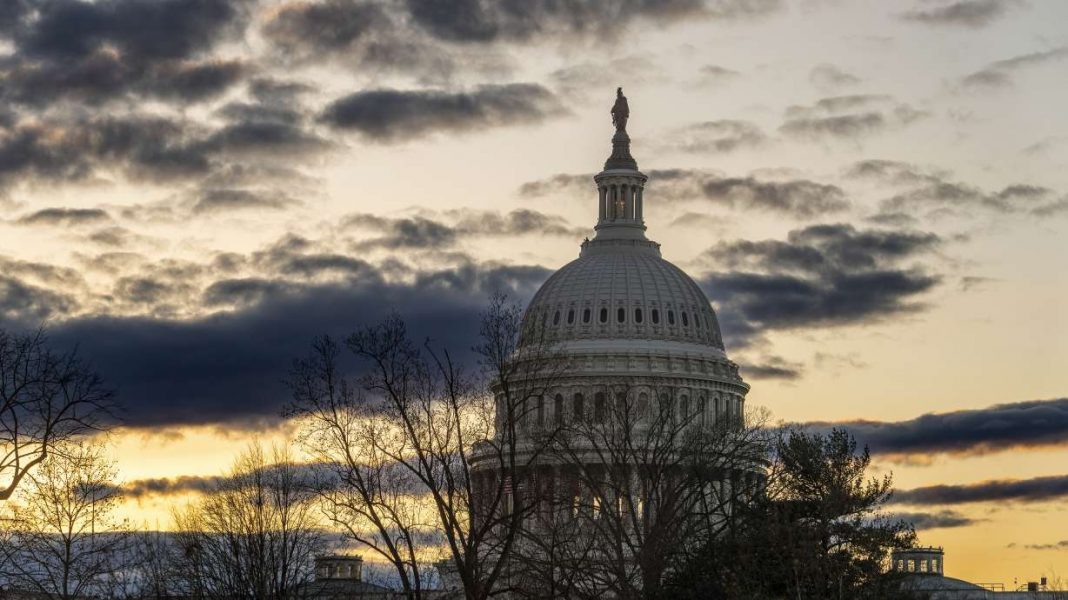SALT LAKE CITY — The U.S. House of Representatives kicked off 2023 with a marathon round of 15 votes across four days before electing Republican Kevin McCarthy as House speaker.
The record number of votes needed to select a speaker was emblematic of the unproductive year Congress would go on to have, in which lawmakers passed the fewest number of laws in a single year since at least 1989. Representatives passed only 27 bills that were signed into law, despite voting more than 700 times.
That’s down from 248 bills signed in 2022, on 549 House votes, according to records from the Library of Congress.
This dearth of legislation is certainly the result of divided government — Democrats control the Senate and White House while Republicans hold the House — but that doesn’t tell the entire story. For instance, the Republican-controlled House passed 72 bills that became law in 2013, when Democrats similarly held the Senate and presidency, according to the New York Times.
Republicans won only a narrow majority in the House during the 2022 midterm elections, leaving little room for defection among the caucus and empowering a handful of far-right members who have been staunchly opposed to compromising with Democrats on many issues.
McCarthy — who acquiesced to that contingent’s demand to change House rules to make it easier for any one member to call for his removal — was ousted in another historic vote in October, after he angered his right flank by working with Democrats on a bill to avoid a government shutdown.
His ouster paralyzed the chamber for three weeks as Republicans scrambled to pick a replacement before settling on the relatively unknown Rep. Mike Johnson, R-Louisiana. Johnson was elected speaker following four votes on the House floor and after the Republican caucus nominated a series of candidates including Reps. Steve Scalise, Jim Jordan and Tom Emmer.
The GOP’s slim majority further shrunk in September with the resignation of Rep. Chris Stewart, R-Utah. Stewart’s seat remained vacant until late November, when Rep. Celeste Maloy, R-Utah, was sworn in to replace him.
Republicans enjoyed a full caucus for only a few days before Rep. George Santos, R-New York, was expelled by his colleagues following a scathing congressional investigation that found he used campaign money for spa treatments, Botox, luxury clothing and OnlyFans, an online platform known for sexual content.
The lack of legislation in 2023 doesn’t necessarily portend similar inactivity in Congress next year. Historically, lawmakers pass more laws in the second year of each Congress, according to Axios, but with what is sure to be a highly polarizing 2024 presidential campaign looming and a narrowly divided government, it’s anyone’s guess.
Bipartisan cooperation in Utah
Utah’s lawmakers stand in stark contrast to those in Washington, after the Beehive State’s Legislature passed a record 575 bills during its legislative session that wrapped up in March. That’s according to Adam Brown, an associate professor of political science at Brigham Young University who created and maintains an online database to track legislative efforts.
Congress and the Utah Legislature don’t make for an apples-to-apples comparison, most notably because Utah has a Republican governor and is represented by a supermajority of Republicans in both chambers of the Legislature, making it much easier for the GOP to advance its preferred policies.
State lawmakers also generally have to pass bills on a single subject, as opposed to the colossal omnibus spending and defense bills approved annually by Congress.
But Utah’s productivity numbers aren’t just a result of circumstance; they reflect a higher degree of bipartisan cooperation than is usually seen in Washington of late.
The vast majority of bills in the Utah House and Senate in 2023 passed with bipartisan support, with only 14% and 9% of votes decided along party lines in each chamber, respectively, according to Brown’s data.
In the House, the average voting majority on each bill included 93% of representatives, which means an average of 8.75 Democrats crossed over to vote with Republicans, assuming that the majority was united. Ninety-seven percent of senators on average were aligned on the winning side of each vote, which means on average, all but one of the six Democratic senators sided with the majority in the same scenario.
Of course, several high-profile and controversial bills are passed strictly on party lines each year, but most legislative work is done with buy-in from both sides.
The fact that party control of the Utah Legislature is practically never in doubt likely contributes to less partisanship than in Washington, according to Brown, because it disincentivizes the “cheap shots” that often make headlines in national politics.
“Usually the better strategy for the minority here is to try to get along as well as they can,” he told KSL.com in March. “Most people don’t realize a solid majority of the bills are passing with bipartisan support. Most people don’t realize the Democrats have managed to pass a lot of their bills … and part of that is because both parties aren’t just running partisan headline-grabbing bills.
“There are a lot of bills (suggested) by agencies, by local governments, by industries in Utah who are pointing out, ’Hey, there’s an ambiguity in the law here,'” Brown said.




Agreed! not surprised with Utah’s efficiency. #votingmatters